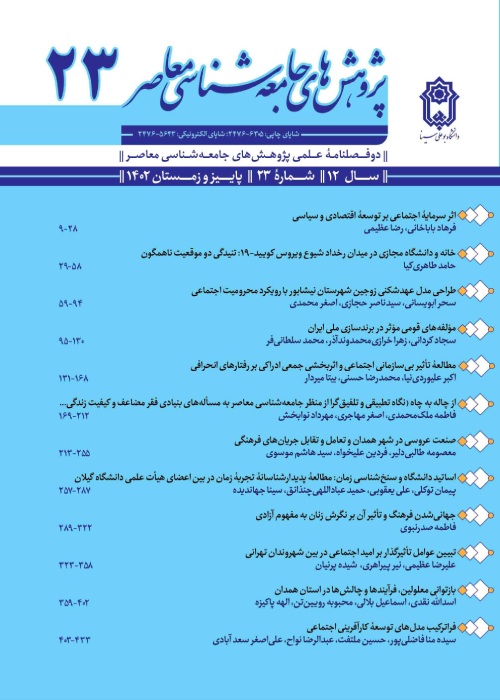Sociological Explanation of Factors Affecting the Formation of Corruption Culture (Case of Study: Citizens of Najafabadi)
The most important characteristic of any culture is its acquisition and the notion of the interactions of society members in its production and reproduction. Sometimes these interactions can be formed to fight corruption, and sometimes to accept corrupt behaviors and ignoring them; a matter that shall cause the stigma of corruption will be disappeared and institutionalized in the society that is known as the culture of corruption. The purpose of this research was to determine the level of the culture of corruption among the people of Najaf Abad city, Isfahan, and also to explain the reason for its formation. This research was carried out quantitatively via survey method using a researcher-made questionnaire approach. A multi-stage random sampling scheme was used in this study with a sample size of 370 people. Finally, the data were analyzed with SPSS and Smart PLS software. The statistical analysis showed that the three components of the disappearance of the stigma of corruption, the unwillingness to disclose corruption and the acceptance of corruption as the norm, constitute the different aspects of the culture of corruption. Hypotheses tests also showed that the independent variables of collectivism, citizenship culture, disclosure culture, and gender equality had a negative effect on people’s desire for corruption culture, and they explained a total of 45.2% of the variance of corruption culture. The increasing trend of corruption in Iran and its negative consequences create the concern that ugliness of corrupt practices will disappear and therefore, corruption will become a cultural feature as they become normalized and accepted. According to the findings of this study, by raising the spirit of collectivism and reducing self-centered tendencies among people, it is possible to familiarize them with the duties and responsibilities of citizenship, fight against gender inequalities, support whistleblowers of corruption, and also encourage them to prevent the formation of a culture of corruption.
- حق عضویت دریافتی صرف حمایت از نشریات عضو و نگهداری، تکمیل و توسعه مگیران میشود.
- پرداخت حق اشتراک و دانلود مقالات اجازه بازنشر آن در سایر رسانههای چاپی و دیجیتال را به کاربر نمیدهد.



